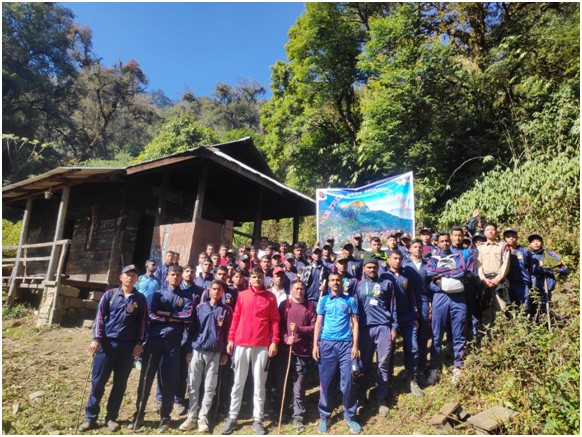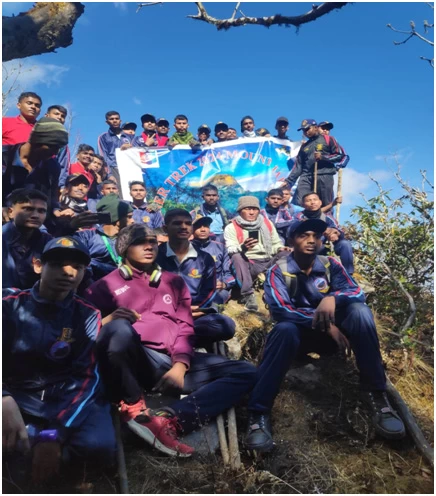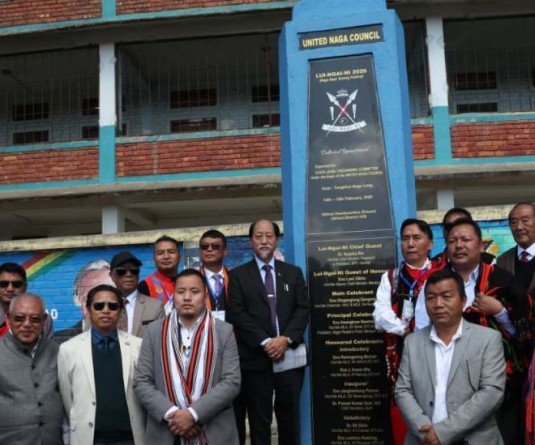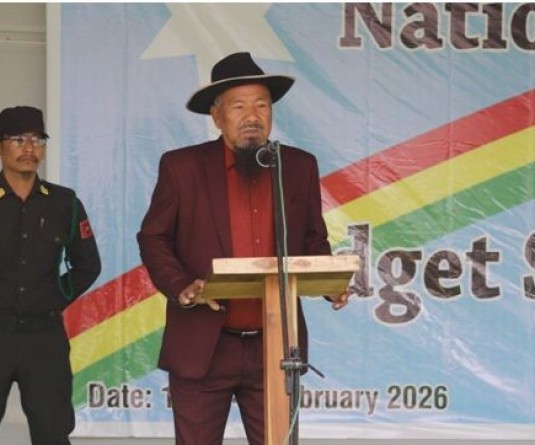NCC cadets from Rajasthan, Bihar & Jharkhand, Odisha, West Bengal & Sikkim and NER during the All India NCC Trekking Camp in Nagaland. (Photo Courtesy: PRO Defence)

KOHIMA, JANUARY 19 (MExN): The All India NCC Trekking Camp culminated at Japfu Christian College, Kohima on January 18. The camp was attended by 510 cadets from Senior Division and Junior Division NCC from NCC Directorates of Rajasthan, Bihar & Jharkhand, Odisha, West Bengal & Sikkim and NER.
A press release issued by PRO & Spokesperson, Ministry of Defence, Manipur, Nagaland and Southern Arunachal Pradesh said the trekking camp was the first of its kind held in Nagaland as part of the NCC North Eastern Trekking event.
The cadets arrived on January 10 in the camp organized by 24 Independent NCC company, Kohima under the aegis of NCC Group HQs, Kohima. On arrival, at the Japfu Christian College, Kegwema, the cadets were organized into four mixed groups, named after the rivers of Nagaland for all trekking and training events. The idea of training in mixed groups is to facilitate and promote healthy interaction of cadets from different cultural backgrounds.

Sekhose, Director DYR&S, and Brig Dipankar Saha, Group Commander, NCC Group Kohima, inaugurated the camp and flagged off the trekking activities on January 12. The Divisional Forest Officer of Kohima Forest Division, Chesavi, also addressed the cadets and shared his perspective on environmental concerns and sustainable living practices, giving easy to understand practical advice. The DFO exhorted the cadets to develop environmental consciousness.
Between January 13 to16, the four groups were taken on daily treks to Japfu Ridge, Kisama Heritage Village, Kisama Potato Farm & View Point, and Zakhama Military Station. The day-hikes in the lap of Mount Japfu were the first exposure for most the cadets to hill-walking. These day-hikes involved daily elevation gain and loss of about 2000 feet, over a distance of 8 to 10 km. The total distance covered over four days of hill walking was about 36 km, and was moderately challenging for first-timers in the hills.
A visit to Kisama Heritage Village gave the cadets a glimpse into the Naga Culture, and the historical significance of these hills during World War-II. Documentaries and films were screened in the evenings, to keep the cadets gainfully engaged.
On the penultimate day, i.e., January 17, inter-group competitions were organized, culminating in a cultural program that was enjoyed by the cadets. The dispersal of the cadets was held on January 18 when the cadets moved back to their respective destinations from Dimapur Railway Station, carrying good memories with them of Nagaland, its people, and their culture, the press release stated.






